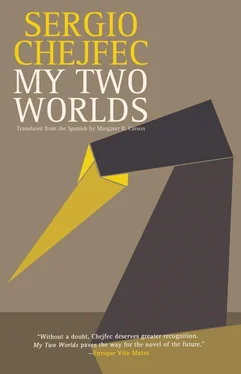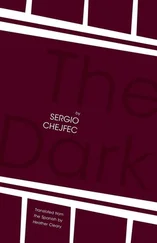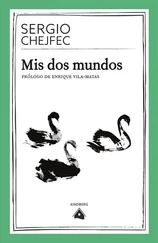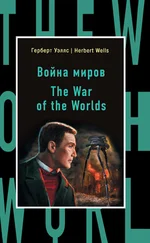If I compared myself with those two women, I would be relieved and somehow consoled, and my sense of well-being confirmed, though in truth my well-being was quite modest, and not all that far-removed from the state of both women. And even though I’d experienced my own share of ups and downs, and suffered mishaps, failures and humiliations, this didn’t change the nature of my situation. Whenever I contemplated lives like those two women’s, I was mesmerized by I don’t know what kinds of memories and fears, and I would compare myself with the most wretched, the most unfortunate, the dregs of urban humanity. From one angle, these comparisons were an obvious comfort; from another, they were hugely disturbing. At my age, to worry about stupidities conceived at the margins of history and of each life’s coordinates, mine in this case, exposed the same obscene abundance to which I was accustomed and that I’d naturalized to the point of considering it obvious and guaranteed. Nonetheless, it also showed the quicksand on which everything rested.
No other street vendor made a greater impression on me than those two women, about whom I knew nothing, neither their situation nor their nationality, let alone their names, or whether they had families, husbands, or children, though I assumed they did, and that they, too, were going through hard times. I could imagine these women getting dinner for their families with the little they brought home, the ensuing meals that were shared in a silence fraught with repressed anger and massed reproaches. Or the opposite: the carefree, optimistic joy of scarcity, the good fortune of living in the moment. It’s very likely that on the days before or after I saw the women, and more than once during my stay in that city, since I was there for a long time, I crossed paths with people who were still worse off, true outcasts and exiles from human society, with no family and, most likely, no identity, who faced tremendous physical challenges, etc.; nevertheless, not even the most wretched individual elicited a fraction of the anguished compassion that the floating presence of these two ladies inspired in me as they tried to hide the fact that they were selling fairly superfluous merchandise.
No need for anyone to think much about why. The women affected me deeply because unlike other street people or enterprising sidewalk vendors, they were, in their shyness and solicitude, and even in their modesty, an image of myself; that is, I would have behaved the same way if I had shared their fate. I thought: They’re not good at this, and I wouldn’t be either; they’re there because they have no choice, circumstances forced them into it, as they might have forced me as well; they feel ashamed, probably unjustifiably so, but uncontrollably — just as I would have.
One afternoon I entered a small café, no bigger than four tables, near the corner where the women stood. It was going to rain at any moment and I told myself it would be best to wait it out while having a coffee. I took a seat in the back, my preferred spot for looking at everything that interests me, although, given the dimensions of the café, in this case the perspective was limited. Only after I’d been sitting there for a good while, thinking of almost nothing, did I glimpse the flower-seller hunched over the counter. At that moment she was taking small bites of something she held in her hands; I couldn’t see what it was because she didn’t once pause or lower the food from her mouth. Most likely it was a sandwich, or plain bread, the typical stale piece given to beggars. I understood that way of eating as another sign or example of her repressed state, or perhaps more exactly, inhibition, because if there was anything revealed by those minimal gestures, it was her guilt or shame. Anyhow. Afterward it began to pour outside. The woman had by now finished the sandwich and for the rest of the time she sat with her head turned toward the street, avoiding my gaze as if she didn’t want to be observed.
I now proceeded according to a territorial intuition, if you can call it that, and at the end of a new and lengthy stretch of pavement, during which I came across several bus stops that were mobbed, inevitably, with people, I finally made out the park, that large green mass inside the yellow city of the map. As I walked toward it on a heavily trafficked avenue, so wide that when I crossed at a light I hardly had time to reach the pedestrian island, the green tree tops in the distance seemed exaggeratedly compact, like gigantic broccoli, with the flattened shade of the park beneath its branches, almost cavernous or jungle-like; as I went along it occurred to me that the contrast between the voluminous green and the city encircling it was an analogy, clearly deliberate, for the physical condition of the country as a whole, and even, you could say, for its satellite image: the Amazonian jungle and its emerald-green life, extensive and complex, in contrast to the materiality of the Brazil that was economic or urban or constructed, I don’t know what to call it.
I took advantage of a path that opened off the avenue to enter the park, not far from the traffic light where I had crossed. Trees with low canopies stood on either side of the path and overarched its entire length, which at first, until my eyes adjusted, made me feel I’d unexpectedly come upon a secluded and astonishingly dense grotto. As soon as I’d stepped inside the park, I realized I had found what I referred to earlier, my secret dream: the park was too large not to have that air of abandonment which so appeals to me. The shadowy, and above all, overgrown edges of the path exuded that unique mixture of neglect, dirtiness, and danger which puts one on the alert; and the truth is, I didn’t need to go very far before I’d verified my impression, since when I looked down I saw that the faded gravel had scattered and turned nearly to dust, suggesting that the path was sporadically used and infrequently maintained. Even the shapes of those pebbles, all similarly rounded, like seeds from an almost barren tree, made me realize I was walking on a surface typical of underused parks, where dust, earth and time — the sand of cities — accumulate with nobody’s help.
As I walked on along the path, the noise of the avenue began to subside, in great part owing to a curve that as a dramatic entrance seemed, at first sight, to have been a success: visitors had to change course immediately, which not only helped them put the city noise quickly behind them, but also signaled that they could lay down whatever burdens they’d presumably carried in from the street. For the attentive observer, the biggest challenge was locating the precise boundary between path and forest, or terrain, I don’t know what it’s called, the park preserve. Because anyone who looked closely, as I did, would see a strip of diffuse matter, insistent even in its ambiguity, containing elements from both sides and impossible to classify. This can probably be said of all paths of any kind, but at that moment I interpreted it as a visitor’s second lesson, possibly harder to assimilate but perhaps more lasting in its effect; though that required greater powers of deliberation than I could imagine at that moment.
When I came out of the bathroom that morning to finish dressing and set off at long last, I heard a familiar voice on the television. It was the man who was afraid, talking about other subjects; now it was the care and feeding of animals. In the country, he was saying, livestock should be raised with care, and as for wild animals they should be regarded with respect. I guessed it was a children’s program, though why, if that were the case, was the man’s fear of the dark considered so remarkable? The interviewer, a man now, was asking about further differences between domesticated and wild animals. The answer surprised me: Wild animals never seem tired, because when that happens they hide themselves, whereas domesticated animals always move languidly, and seem tired even when they’re not. I was expecting a more classical distinction, and then, I don’t know why, I felt I had to do a recap. . I was in my hotel room, sitting on an unmade bed, in the south of Brazil, I had visited a book fair the day before after coming out of a conference, then afterward read a so-called anonymous message and before I went to sleep had listened to the same person I was hearing now, except talking about something else.
Читать дальше












